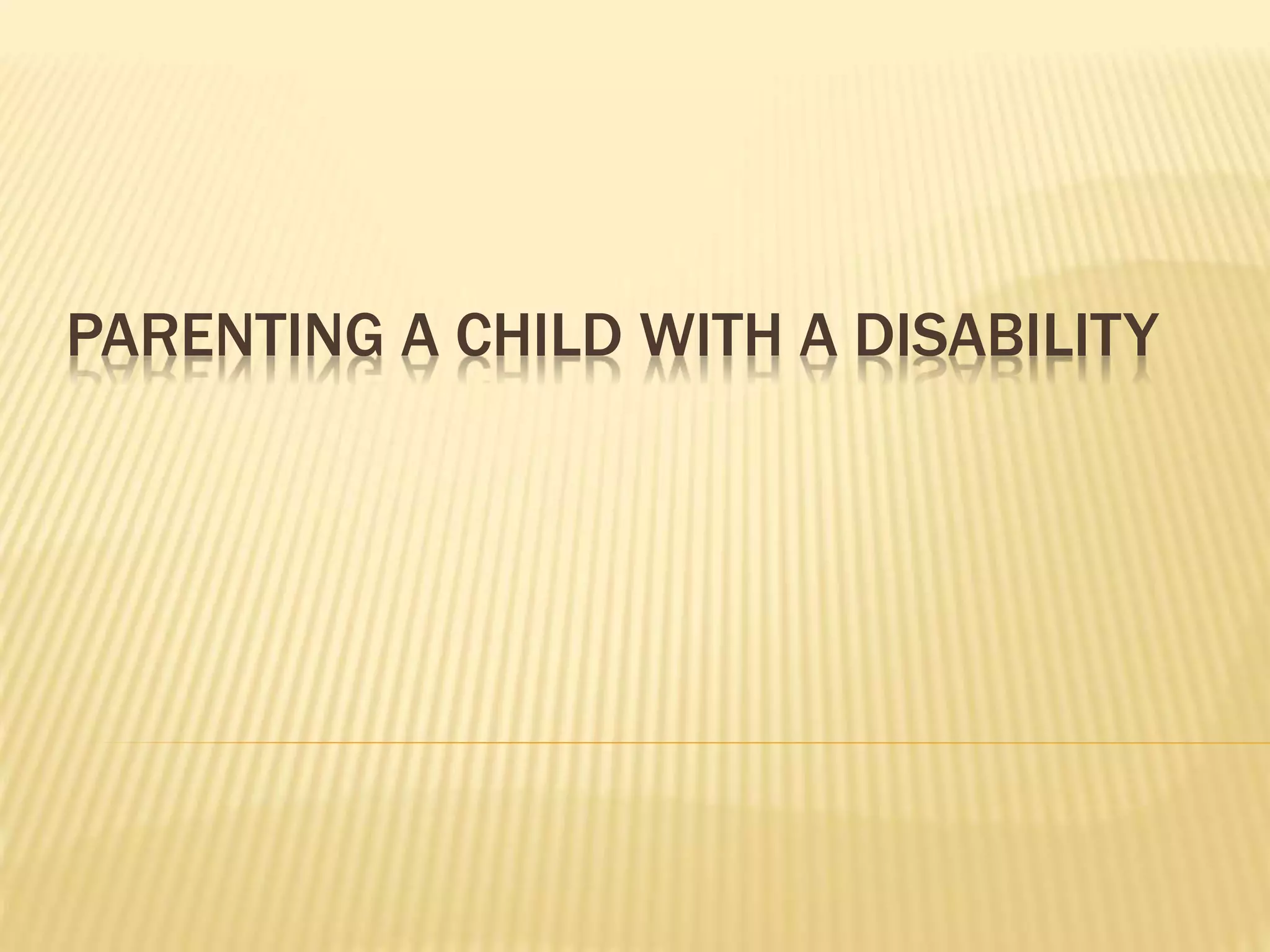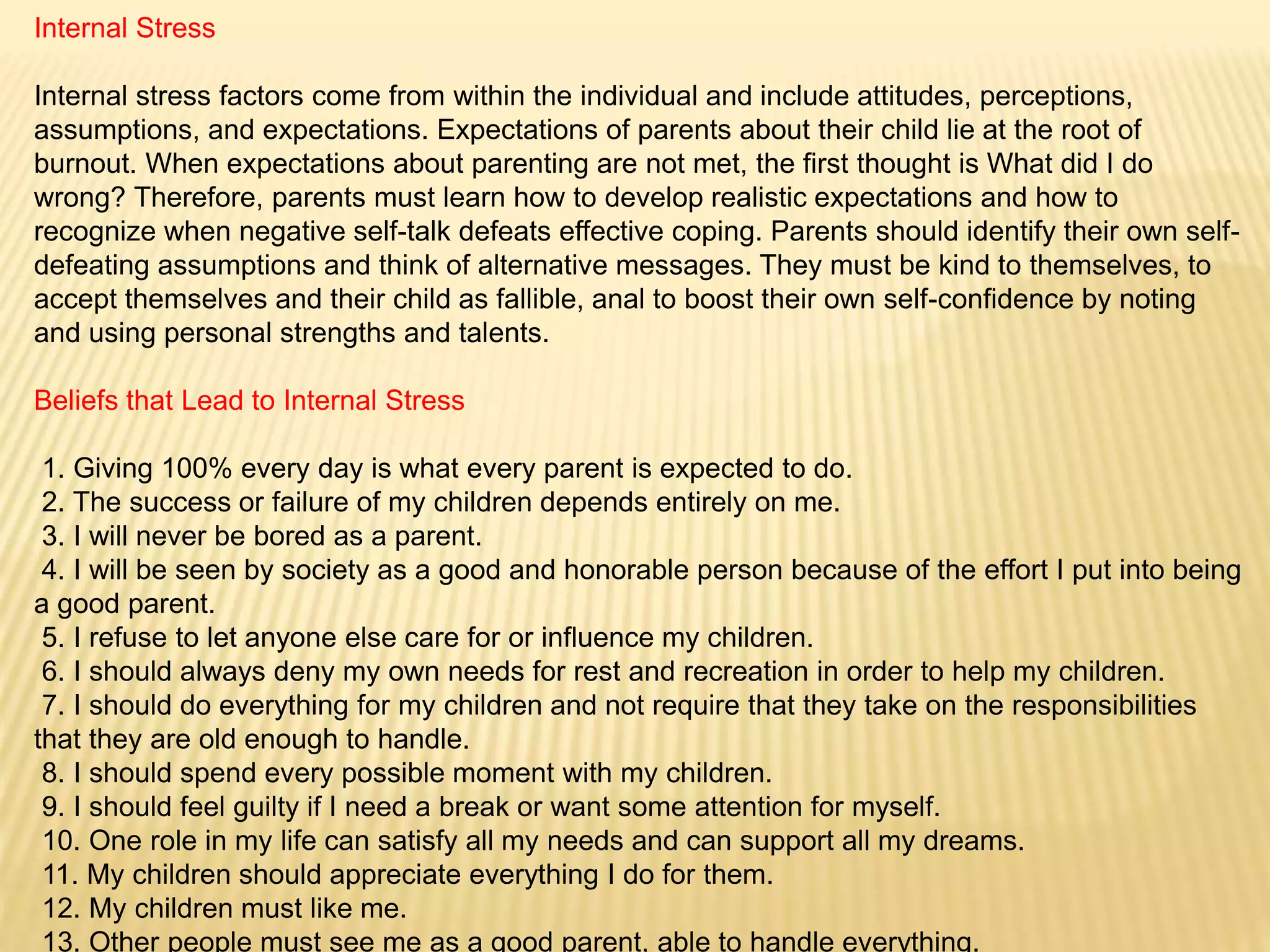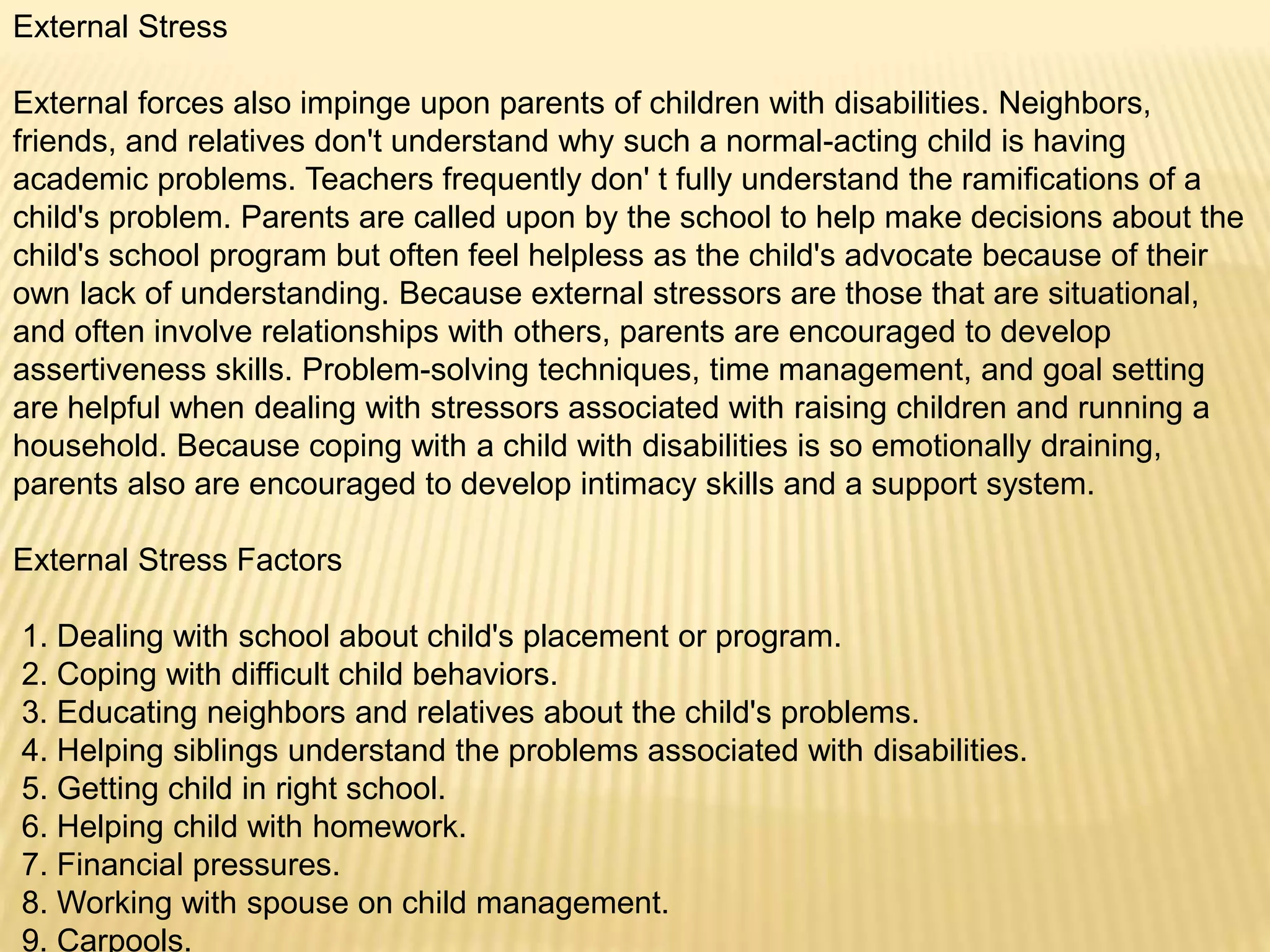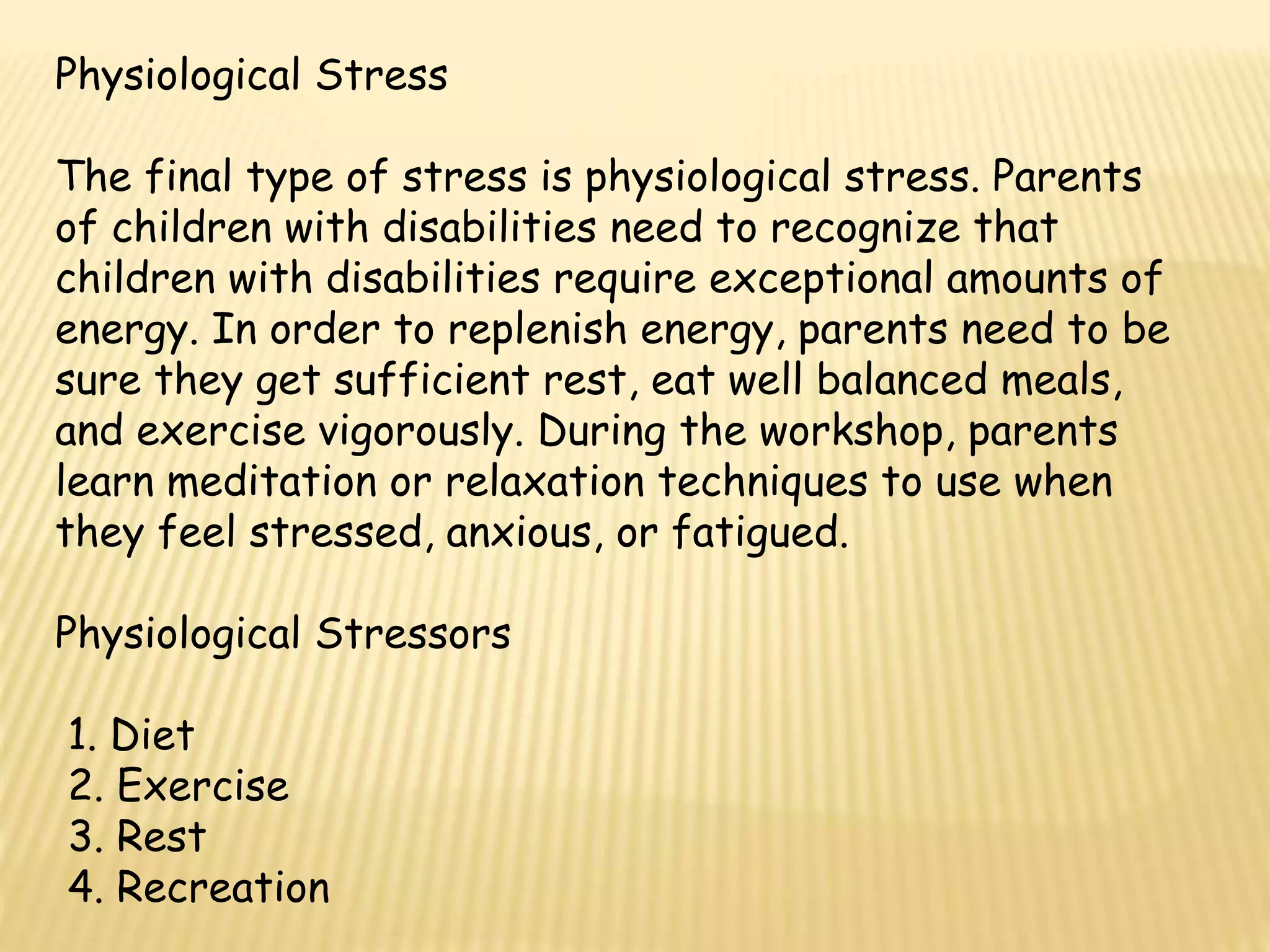The document discusses parenting a child with a disability. It covers several topics:
1. The various types of stress parents may experience - internal (attitudes/expectations), external (situational factors), and physiological (health).
2. Common stressors associated with raising a child with disabilities like worry, guilt, difficult behaviors, financial burden, and lack of services.
3. Strategies for coping with different types of stressors such as developing a support system, positive thinking, assertiveness skills, and ensuring proper self-care.
4. The impact on siblings, including potential resentment/shame but also development of empathy, and the importance of communication.
5. General advice


















